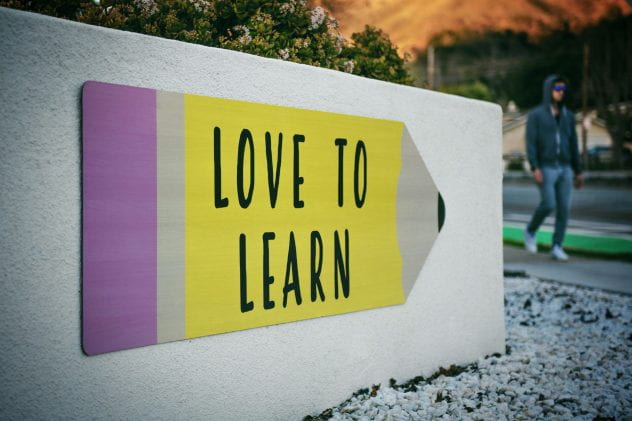
Author and artist, Lara Haworth
Lara Haworth is a writer, visual artist and filmmaker. In 2018 she was accepted onto City’s flagship year-long novel writing programme, The Novel Studio. She was also the winner that year of our Literary Agent Competition. Always tipped for success, last year Lara sold her debut novel, Monumenta, to Canongate. The novel will be published this summer. We caught up with Lara to find out more about her writing life and her journey to publication.
- Have you always written?
Yes. As soon as I was able. I wrote my first story aged four in a small notebook on my mother’s desk. Its protagonist was a knight who comes across three forking paths, and cannot decide which one to take. Goodness gracious, I wanted to him to say, as he realises the choice lying ahead. I spelt it goodness gracars.
2. Which book was the first to have a real impact on you as a reader, and which as a writer?
The first book I read that made me realise there was something other than just a story going on was The Great Gatsby. I was eleven. Much of it went over my head, the unrequited love, the critique of wealth, the disillusion. But I remember Fitzgerald describing the ‘silver pepper of the stars’ and looking up at the sky and actually gasping. So that’s what you can do, I realised. And maybe this, too, and this…
Fast forward twenty-three years, and my life is in some disarray. (This is an understatement.) I was visiting friends in Spain and started reading Deborah Levy’s Things I Don’t Want to Know. About three chapters in I felt an overwhelming pressure, as if a dam was breaking somewhere in my heart, or my throat, or my knees. I started to pace up and down and up and down this beach, gripping the book like it was a hand, pulling me up from a deep well. It gave me a kind of ferocious, blistering instruction to write, properly, seriously, now. It said, There is nothing else for you. When I got back from Spain, I applied to the Novel Studio. I still have the book. It has these white-knuckled dents in the cover.
3. If you could tell your younger writing self anything, what would it be?
Don’t expect anyone to find you, and your writing, without telling them where you are or what you’re doing. Don’t imagine that this is something you can do on your own. Don’t be frightened. (You will also be frightened.)
4. Why do you write and what makes it so vital for you?
When I’m in the excavating, mining stage, it rolls on a scale between because I have to and because I want to. Sometimes, when the I want to is struggling, because I am tired, or frightened, or stuck, or distracted, the I have to engages more fiercely, as more of a grim-faced imperative, shaking its head and pulling me back to my desk, to my thoughts, my subconscious, until the I want to returns in equal measure, to provide a lift. At its best, they both work together, and that is when you’re flying.
When I’m redrafting and editing, things get bigger, wider. I picture the reader: their joy, their woe, their precious time. If I can illuminate something – a feeling, a place, the way a potato slices open in a ‘90s deli – that impresses on a reader a sense of recognition, and a slightly different way of seeing and thinking about the world, then that is also why I write. There’s politics there too. I write to smuggle in difficult histories, strange emotional realities, and I try to centre queer lives, so long obscured in the literary canon.
5. Do you think writing can be taught? And relatedly, can you tell us a bit about your experience of being on writing courses?
When I was a teenager, I was at a friend’s house, whose father worked in publishing. Over dinner, he went on an extended rant about how you couldn’t teach creative writing, how all his authors had always written, and that was the only thing that could possibly matter. Perhaps because I didn’t know anyone else that worked in publishing and I wanted to be a writer, I really took his words to heart. It was a bad decision. From that moment on I avoided creative writing classes, and chose instead to write alone, in secret, thinking: I’m writing, and this is what I’ve always done! Someone will find me and recognise my labour. They didn’t. And the longer I wrote in secret, the more my fear grew about sharing my work. Every now and then I would submit something to a ridiculously prestigious magazine or journal and then be crushed when I was (inevitably) rejected. A pretty sad cycle, that I thankfully managed, eventually, to break. I wish I had done it sooner.
While I do think that there needs to be some ineffable something to your writing to get the best out of a writing course, there are a whole host of things you simply cannot get on your own. Like, learning how to build a novel, which is architecture. Learning how to edit, how to build pace, when to cut, when to trust your reader, when to give them more. This you learn by submitting your work to be read by your peers. And you’re not ready. But then you become ready. And the readiness grows. And that expectation, that deadline, is generative. It makes you a better writer.
My time on the Novel Studio was completely transformative in this respect. Being read. It was such a relief. Even if the feedback was hard, I would still sometimes feel very emotional on the tube home, seeing all those different handwritings in the margins of my manuscripts. And it was a privilege to read my peers’ writing too – to lose myself in their worlds, and bring my sensibilities as a writer to their work. The course also taught me that books don’t live in a blank space. They’re deeply connected to the world, most pressingly, the publishing world. All of the things that I had so studiously avoided for so long: talking about my work, emailing agents, trying my luck, writing pitches – all had to be done. And it was so very helpful to be given the tools to do this, to knock on all those guarded doors.
6. Can you tell us a bit about your experience of getting a publishing deal? Has anything been surprising, in a good or bad way?!
During the Novel Studio, one of my tutors revealed that her first novel did not get picked up for publication. I remember so vividly the shock I felt, as if she’d reported her own death. I glimpsed how painful that must have been for her. Perhaps because it had been such hard work to even get to that point, it was something I hadn’t considered –– even though the evidence, should I need it, was all around me, told again and again by many of my favourite writers (Hilary Mantel!).
A year and a half later, I was telling the same story. I wasn’t so naive that I thought I would definitely get a publishing deal for my first novel, but it did seem like finishing the final draft and working through more rounds of rolling rejections to get an agent might mean I was finally there. I was, of course, wrong. My first novel was not picked up. It was an extremely painful experience. Loss. A kind of grief. By that point I had gone from extreme secrecy about my writing to extreme exposure – and, in the way of all worst nightmares, my failure was also happening on a very public scale. Everyone knew.
Full credit to my partner, who after watching me mooch around in my depression for a while, said, The only thing that’s going to help now is getting back to work. She was right. I had started writing Monumenta in the summer of 2020. I went back to it in autumn 2021, and within two months it was finished. The rejection had actually sharpened my writing, made me care less about failure. I was able to take more risks. I carved a chunk out of it and submitted it as a short story to the Bridport Prize, and actually won. Very unexpected. This was the catalyst for my agent to submit it to publishers.
I’m still surprised Monumenta got picked up. It doesn’t really conform to any of the silent rules of the industry. It’s short. It’s about monuments, and difficult European history. I couldn’t think of any other books to compare it to. In the end, we had two offers and went with Canongate, who have always been my dream publisher. Securing the deal took two extremely nerve-wracking weeks. Sometimes I still can’t believe it’s real. I think what I’m trying to say with this very long-winded answer is that risk and failure are not just part of the process, they are the process, they influence and change the work in rich and strange ways.
7. Which fiction writers inspire you currently?
Mariana Enriquez. Wendy Erskine. Olga Tokarczuk. Jenny Erpenbeck. Colson Whitehead. Deborah Levy. Kevin Barry. Christina Sharpe. Lan Samantha Chang. Anne Enright. Sebastian Barry.
8. Do you have a particular writing process? Favourite place or time of day to write? Any rituals?
I work best when I have dedicated chunks of time. I’m not, sadly, one of those writers that can write for fifteen minutes in the morning and then get on with their day. It’s a whole day / night thing. It’s all or nothing. I have chosen a more unsettling, unstable line of freelance money earning, so that I can work manically for periods and save up, and take time off to write. This functions in some senses, but during dark nights of the soul it can feel fundamentally unsensible and wrong. When I am writing, I have a target word count every day, and that can take anywhere between two hours and a whole day to achieve. I’m lucky to have my own little writing space in our house, which overlooks the street. So I still see a little bit of life, going by.
9. Are you someone who plans and plots before you write or do you write to discover the story? Or both?!
I start with at least one person (who’s already been talking to me in my head for a while), a place, a primary situation, and a sense of its undertows. But I write to discover. I feel quite strongly that that’s my job – to go to that weird place of half dream and subconscious. A dark, dark forest. It’s a constant tussle between being in control of my material and also letting my material have some control. To let it go. I think that plotting it all out at the start would essentially mean executing a plan, and that’s not really the point, for me. It’s not a report. It’s got to be deeper than that. About a third of the way through I start to see what’s happening, where the loops and patterns and connections are, what the characters are wanting to do, and not do, say, and not say.
10. And to finish, what are you working on now?

Lara’s debut novel, Monumenta
I’m halfway through my third novel, which is called Julie Needs Things. All my novels are different, but this one feels harder than the others. It takes place over a long period of time, it’s told in the first person, it’s set in the UK, it contains some autobiographical elements. Yet it is a work of fiction. I wrestle with telling stories from my own life. I feel, instinctively, that it might not be interesting.
Thank you so much, Lara! To pre-order Lara’s novel, visit HERE. And for more about Lara and her work, visit HERE.
For anyone inspired to join The Novel Studio, applications are now open with a 30 June deadline. Please email any questions to Emily.Pedder.1@city.ac.uk
For all our other short writing courses, please visit HERE.







 Are you a budding copywriter looking for tips on how to get started? Here are three simple steps to help you build a portfolio using your interests as inspiration. Whether you love golf, graphic design or doing good, these strategies will help you on your way to producing top-notch copy.
Are you a budding copywriter looking for tips on how to get started? Here are three simple steps to help you build a portfolio using your interests as inspiration. Whether you love golf, graphic design or doing good, these strategies will help you on your way to producing top-notch copy.



 By Maria Sigacheva
By Maria Sigacheva The introduction should summarise the purpose of the letter. Whether it’s about missing documents or querying financial statements, make it clear upfront.
The introduction should summarise the purpose of the letter. Whether it’s about missing documents or querying financial statements, make it clear upfront. information twice. Make sure you order events chronologically.
information twice. Make sure you order events chronologically.











Recent Comments